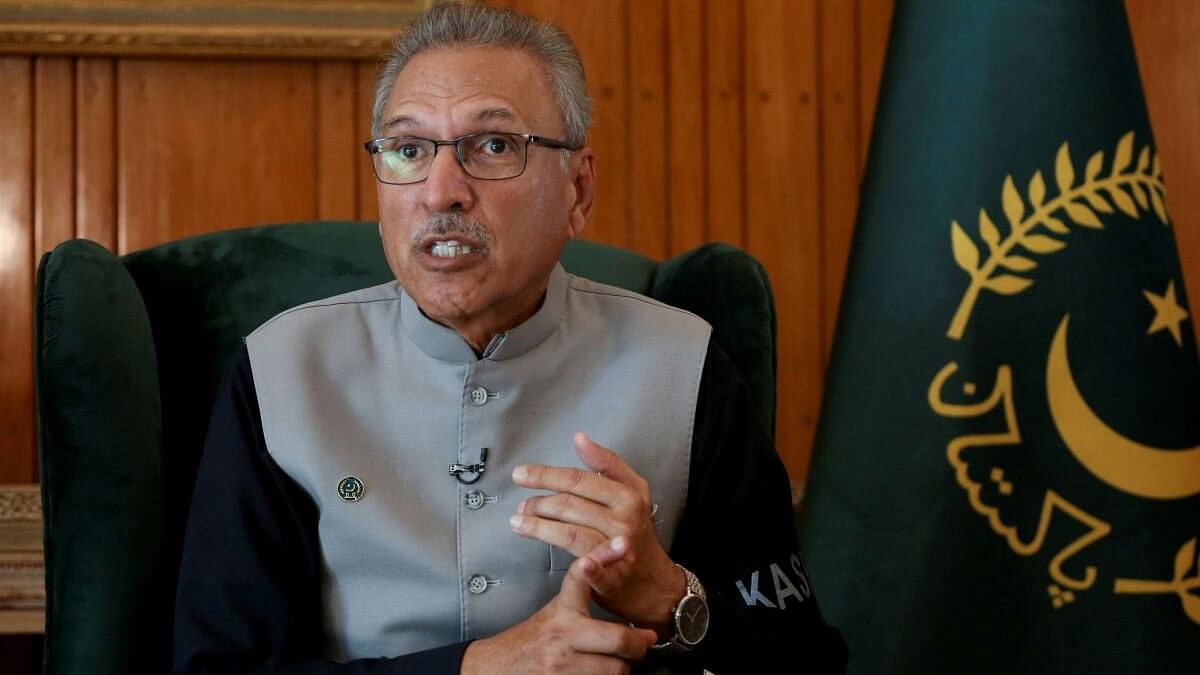
Pakistan President Arif Alvi.
Credit: Reuters Photo
Pakistan President Arif Alvi on Wednesday unilaterally proposed November 6 as the date for the general elections in a letter written to the chief election commissioner, amidst controversy over polling dates in the cash-strapped country.
In his letter to CEC Sikandar Sultan Raja, President Alvi cited Article 48(5) of the Constitution, which he said: 'empowers and mandates the president ‘to appoint a date not later than 90 days from the date of the dissolution, for the holding of a general election to the Assembly’'.
Hence, 'in terms of Article 48(5), the general election to the National Assembly should be held by the 89th day of the date of dissolution of the National Assembly, i.e. Monday, 6th day of November 2023”, wrote Alvi, who was a founding member of jailed former prime minister Imran Khan's Pakistan Tehreek-e-Insaf party.
Alvi wrote that 'in an endeavour to fulfil the constitutional obligations, the chief election commissioner was invited for a meeting to devise the modalities of implementing the constitutional intent and mandate'.
However, the Election Commission of Pakistan (ECP) chief turned down the invitation by saying that the president had nothing to do with the election date.
Alvi in his letter alluded to Raja's response, saying that the CEC “took a contrary view that as per the scheme of the Constitution and framework of electoral laws, it was the domain of the Election Commission, and following the publication of last preceding census on August 7, duly notified delimitation of constituencies was in progress, a mandatory requirement stipulated by Article 51(5) of the Constitution and section 17 of the Elections Act, 2017”.
Interestingly, President Alvi's five-year term ended last week. Under the Constitution, he will continue to serve as head of state until the next presidential elections, which will take place after general polls in the country.
The development comes two days after President Alvi met with the caretaker Law Minister Ahmed Irfan Aslam on Monday to discuss the elections.
The National Assembly was dissolved on August 9 making it mandatory to hold elections within 90 days. However, the previous government just days before the end of its term endorsed the results of the countrywide census.
The decision made it mandatory for the election commission to devise new electoral districts before elections for which it has been provided 120 days by the constitution of the country.
The ECP has announced to complete the delimitation process by November 30 and then announce election schedules which are expected to be held in January. However, the president and some political parties insist that the elections should be held within 90 days.
There is another controversy as the president insists that he got the powers under the Constitution to set a date for elections which is disputed by many including the ECP. The counterargument is that he lost power to set a date after tweaks in election laws by the previous government and now the ECP is empowered to set a date.